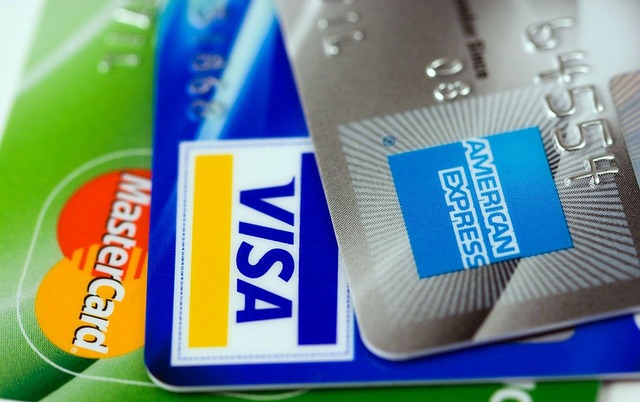The term FinTech has become quite distinctive recently. Many people come across it in the information space, and even more use FinTech solutions in their daily activities. The importance of technological services for the industry is quite significant because it is thanks to FinTech, the finance industry is often associated with innovation.
In this article, we will focus on discussing the disruption that FinTech is bringing to the financial industry.
Table of Contents:
1. Digital Innovations that Disrupt the Financial Sector.
1.3. Cryptocurrencies & Blockchain.
1.4. Digital Wealth Advisory (Robo Advisors).
1.6. Mobile Remote Deposit Capture (mRDC).

Digital Innovations that Disrupt the Financial Sector
New digital financial technologies have started to change and disrupt the financial services industry over the last ten years. While though financial technology has always advanced, it is arguable that in the digital age, development has accelerated due to advancements in the internet, mobile communications, machine learning, and information gathering and processing technologies.
The innovations that have an impact on disruptions in the financial sector include peer to peer lending, marketplace landing, equity crowdfunding, cryptocurrencies and the blockchain, digital wealth advisory, mobile remote deposit capture, mobile payment systems, mobile remittances and micro investing.

#Peer to Peer Lending
Peer to Peer Lending consists of a personal loan of money straight from an investor by a person who needs financial support at a given moment. In this case, it is not necessary to go through a lender such as a traditional bank or credit union.
The borrower repays the borrowed money over a specified period of time with interest.
Often it is possible to come across peer to peer landing platforms where the platform's operator acts as an intermediary between the lender and the investor. The operator earns thanks to the commission deducted from both sides.
#Marketplace Lending
By definition, marketplace lending also describes platform lending or online lending, and it is definitely one of the key and groundbreaking FinTech business models.
The Marketplace Lending platform works on a similar principle as P2P lending, but the main difference between them is that marketplace lenders connect borrowers with both individual and institutional investors.

#Cryptocurrencies & Blockchain
Cryptocurrencies belong to the category of digital assets and serve as a medium of exchange, a store of value and a unit of measurement.
Digital currencies have the potential to revolutionize the current perception of payments and set new rules for transactions.
Blockchain technology can be defined as a decentralized ledger through which participants can confirm transactions without requiring a central clearing organization.
Blockchain also allows you to securely transfer money between two people without going through a bank or financial service provider.

#Digital Wealth Advisory (Robo Advisors)
Digital Wealth Advisory is an automated solution based on Artificial Intelligence (AI) and Machine Learning (ML).
Robo advisors are tasked with advising or managing the assets of a person who needs guidance.
Digital advisors are included in the category of disruptive innovations in technology, as they are much cheaper than conventional advisory services, and also more easily available.
#Equity Crowdfunding
Over the past few years, crowdfunding activities have become more prevalent both locally and worldwide due to the rapid expansion of the internet and social media.
The general definition of crowdfunding stands for utilization of financial contributions received from numerous people or organizations to finance a project, a corporation, a loan, a business, a FinTech company, a donation, as well as other needs through an online platform.
Equity Crowdfunding (ECF) is investing in a project or company (often a FinTech startup) via an online platform in order to provide investors with a financial return.

#Mobile Remote Deposit Capture (mRDC)
Mobile Remote Deposit Capture allows depositing physical checks. It relies on taking a picture of the front and back of the check with your phone and sending it to the specified financial institution.
However, this solution poses a risk for the banking sector. Traditional banks are concerned about fraud and unintentional abuse (this is about depositing the same check more than once).

#Mobile Remittances
Worldwide remittances now amount to hundreds of billions a year. Thanks to Mobile Remittances, people who work outside their home country are able to transfer money to a person from who actually lives in it.
The benefit of this type of money transfer is the reduction of additional costs because sending money abroad can be expensive; transaction fees may be as high as more than half of the amount sent.

#Micro Investing
Nowadays, any individual can invest in a fraction of stocks such as the S&P 500, bonds, ETFs and even cryptocurrency.
Some brokerage companies are willing to purchase whole shares of stock and distribute them to investors in fractional stock increments. As a result, the investor can purchase pricey shares for less money.
The key benefit of micro investment is that it makes investing more accessible by allowing the investor to purchase the greatest stocks for only a few dollars.
The platform that enables micro investing is, for example, Robinhood. You can read more about this application in our recent article "Top FinTech Companies to Watch in 2025".

Conclusion
It can be seen that the FinTech innovations are revolutionizing traditional banking services because there are the reasons of significant changes taking place among banks.
FinTech companies and startups innovate across the board by creating new business models, goods and services, and delivery methods in addition to using cutting-edge technologies. The FinTech firms introduce and promote the expansion of interest in mobile-centric solutions, alternative data sources, its application, and more.
In general, the financial industry values user convenience, transparency and innovation. Applications created by FinTech companies are also characterized by simplicity, convenience and ease of use.
Traditional banks, to respond to this revolution, had to implement several improvements to protect against fraud, like smart chips, biometric sensors, and branchless banking. Such a procedure was also aimed at remaining competitive in the market.
If you would like to know more about FinTech, be sure to visit our Railwaymen's blog!
We, as a software house, have a wide range of offered services, including FinTech app development, so don't hesitate to contact us directly, if you have any project idea to discuss.



